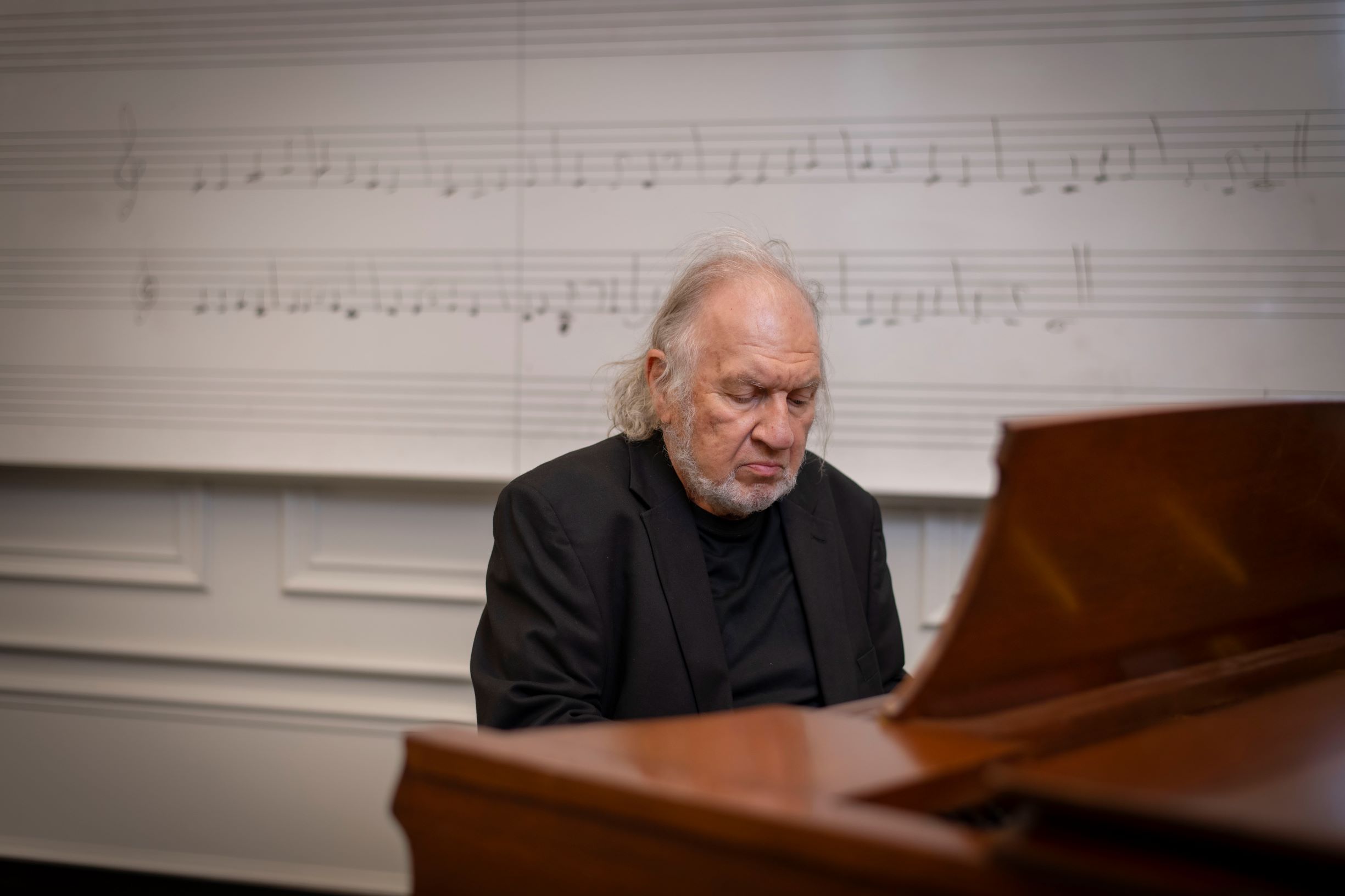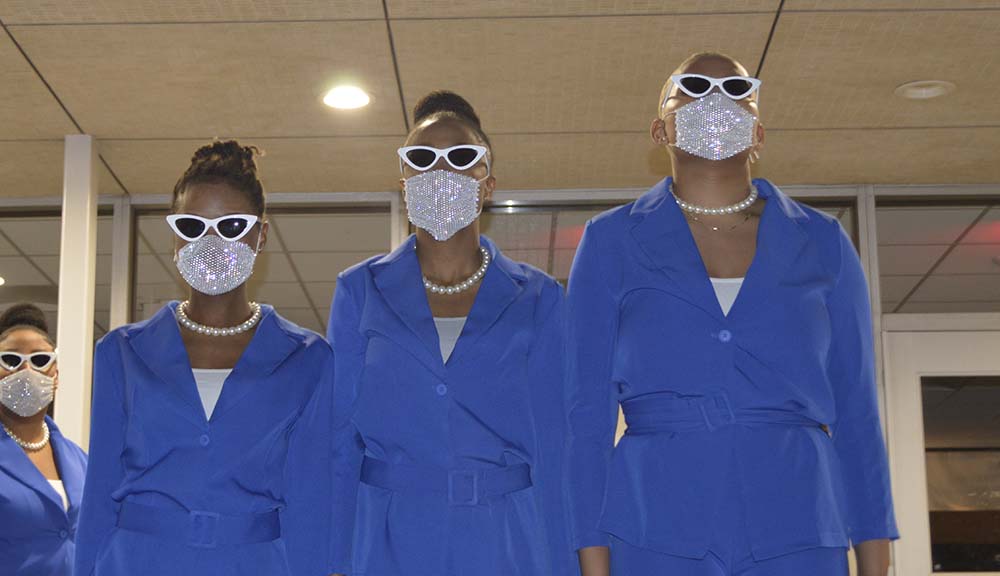Five years before joining the WPI Orchestra as its new conductor, Abigail Koo was building a career as an award-winning musician, with the talent and educational pedigree needed to command prestigious podiums around the world—such as those in Lucerne, Salzburg, Moscow, and Seoul—and across the United States. A prolific solo pianist, chamber musician, orchestral violinist, and conductor, she studied and collaborated with eminent conductors and kept up a rigorous performing schedule.
But in 2016, she put a pause on her career and moved to Cambodia with her husband and two young children, committing to five years of humanitarian work to serve others, putting her Christian faith into action.
“I don’t believe in art for art’s sake. There are greater, more important things in the world,” she says. “Life is not about your career or even performing beautiful music in concert halls. It’s about making a difference in people’s lives and making the world a better place.”
She particularly wanted to help those suffering from the aftermath of war, “because they need healing in their hearts. And that’s what music does,” she says.
In those five years, Koo founded two music schools for disadvantaged children, one in Battambang, Cambodia, and one by the eastern border of Myanmar, where internally displaced people live in harsh conditions. In addition to supporting music and fine arts education, she raised (and continues to raise) money from around the world for scholarships for young women, as well as for food, shelter, and musical instruments, successfully establishing programs that can be supported from a distance.
“What touched me the most was the resilient strength of the people of Cambodia and Myanmar after what they’ve been through,” says Koo, whose parents grew up in post-war Korea. “I’m still relatively young, and my kids are young enough, so focusing on this project at this point in of our lives seemed right.”
Breaking the Gender Barrier
Koo received her undergraduate degree in piano performance from the Manhattan School of Music and her master of music degree and performance diploma for postgraduate study at Indiana University. She also undertook doctoral studies in orchestral conducting as a Dean’s Merit Scholarship recipient.
Throughout her studies and in her career, Koo has been undeterred by the gender biases she has encountered in an industry dominated by men, an imbalance shown starkly in the fact that the top 25 orchestras in the United States are all currently led by male conductors.
“I’m quite short in stature, too, which doesn’t really help when someone is looking for this grand maestro on the podium,” she says. “But I’m not deterred by the naysayers because if you are passionate about something, you shouldn’t let society, or your family, or anyone dictate what you do. Musicians are the first ones to know who is genuine or not. They are the first ones to know who is faking up there and who is actually making music.”
Koo says she can relate to the challenges faced by women in science fields traditionally dominated by men, and hopes she can offer a positive example of success.
“Don’t let gender bias deter you from what you want from life. It’s going to take hard work and determination—there’s no way around that. Because of your gender, there may be more obstacles. But don’t wait until those paths are cleared for you to go forward,” she says. “And as you go forward, other people will get inspired.”
The Appeal of WPI
Upon returning from Cambodia, Koo made the deliberate decision not to return to the insular classical music world of conservatories and professional orchestras. WPI’s project-based learning appealed to her, especially the emphasis on how STEM interacts with the world.
“At WPI, I envision a place where students can connect with world-class musicians and get conservatory-level training."
“Many classical musicians focus on preserving music as if it was in a museum. Music is supposed to connect to other parts of life, such as literature and technology,” she says. “At WPI, students are not just learning from their textbooks and in their classrooms. Their whole education is about going to places and making real-life changes.”
Koo is leveraging the orchestra’s endowment, established by generous alumni who recognize how important music was to their STEM education, to invite guest musicians and master instructors to campus so students can learn from the industry’s best talent.
“At WPI, I envision a place where students can connect with world-class musicians and get conservatory-level training,” she says. Upcoming examples: Boston Symphony Orchestra (BSO) assistant principal cellist Oliver Aldort will teach a master class this spring; internationally acclaimed trumpeter Christopher Coletti will serve as a guest soloist at the orchestra’s performance on Feb. 20; and violists Gary Levinson, associate principal concertmaster of the Dallas Symphony Orchestra, will visit in April.
“These instructors I’m bringing in are top-notched musicians. They are also excited to have an influence on the students who will be making the world run once they graduate,” Koo says. “I want students see that you really can excel in both music and science.”
She is also hoping to establish a more formal relationship between the BSO and WPI, creating a pipeline for more master instructors and guest performers, in addition to establishing a partner for future Interactive Qualifying Projects.
“The BSO is interested in making an impact beyond their community. What better way than to connect with the future technology innovators at WPI,” she says. “And WPI will be the only STEM school to partner with a major symphony orchestra.”
Music as Hope
Her experience witnessing the struggles of the people of Cambodia, who suffered through the trauma of the brutal Khmer Rouge, and those in Myanmar still fighting for survival under an authoritarian military rule, gives her unique insight into the essential skills needed by college students everywhere as they struggle with their mental health and well-being.
“I was trying to understand, where do the people of Cambodia and Myanmar get the strength to go forward? And I realized it was hope, and they found hope in their communities. If they were just alone in this persecution, it would have been devastating, but they were in it together. Family, community, and neighborhood ties were much stronger because they went through difficult times and were able to find the emotional support from one another,” Koo says.

She hopes all WPI students can find a sense of community to build their resilience.
“Students are so busy. They come to orchestra rehearsal despite their exhausting schedule because it is rewarding for them,” she says. “We need to listen to each other and be there for each other. Just as the flutes support the melodic line of the cellos, we must listen and practice empathy each day. With music, you express your emotions, even if that emotion is that of desperation and despair. When you are performing music, when someone understands it—meaning they feel it—there’s that connection. That’s what we need in our community.
“I want this practice of empathy to go beyond my orchestra students. It doesn’t have to be music—whatever that community is, we need to have that connection,” she says. “I hope students around the campus will find a community where they can be themselves and express their voices in any way.”
—Kristen O’Reilly




